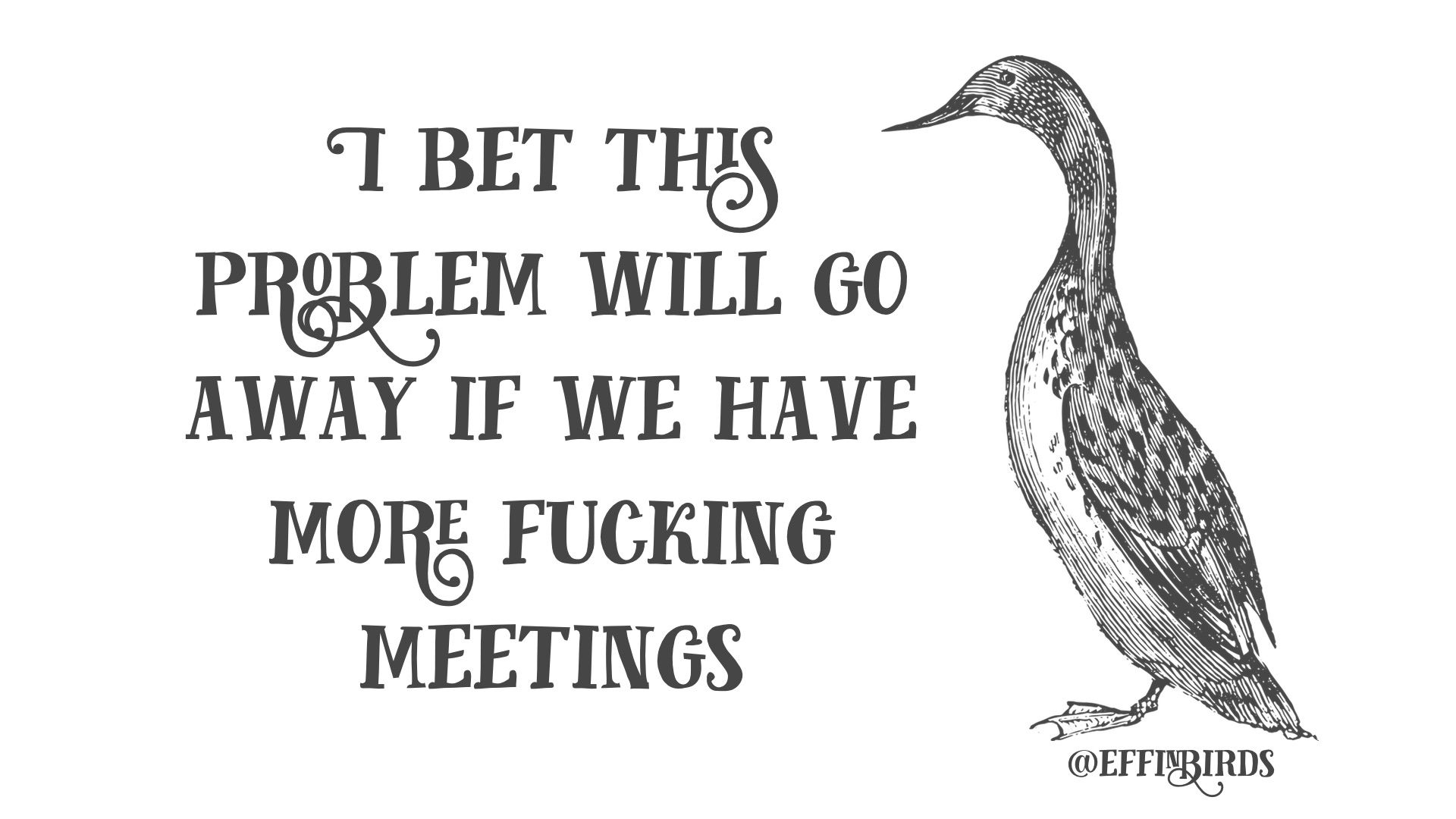Folks in government love to have disclaimers everywhere that their opinion is not necessarily the one of their employers and the view presented here and their personal ones. I’ve always found that a bit tedious and unnecessary but since I’m going to post something slightly related to “Digital Government” I though I might as well just drink the whole kool-aid.
There was a good question asked on Twitter
But when reading some of the answers and from lurking at the #GCDigital hashtag, I’m not sure it’s the right question.((Also, to actually directly answer the question, I think it’s near impossible to be the “real” agile [as opposed to the “wagile” doing sprints inside a waterfall] ))
I posted a thread on twitter about it, because I think that’s what the cool kids are doing these days, but wanted to unroll it here. (And fix some formatting)
So my answer:
I wonder if that’s actually the right question. At times, it seems we’re focused on “Agile” and “Digital Transformation” but those things are meaningless. They are, at best, proxies of what the true goal should be.
In my opinion, the real goal is to deliver better services to people.
That’s it, point blank. All the other stuff, “Agile”, “Digital Transformations”, “Microservices”, “Cloud Native”, those are all distractions.
We sometimes get so focused on adopting the “best practices” from tech vendors promising the new buzzwords in nice packaging or trying to imitate other tech startups that we lose sight of the real goal.
Facebook has been agile, they use all of the tech buzzwords and all of the metrics and user research etc. So does Clearview, so does Twitter. The outcomes of those companies is not what I would want the Government of Canada to look like.
So why not focus on what we really want to achieve?
How can we serve people better in the government context?
I haven’t encountered anyone who was like: “If only I could fill out my EI claim on a serverless edge computing platform that had machine learning, was secured via the blockchain and developed via agile methodology”
The focus shouldn’t be how on do we try to change this massive institution’s project methodology to one that has been successful in the private sector.
Rather, I think it should be, how do we, in the given context((Let’s not pretend the GC is like a private enterprise. We have restrictions and parameters that, for better or for worse, are different from private enterprises)) serve people better? What will tell us that we have served them better? And from there, iterate on practices we think will achieve that outcome.
Because that’s the only really important part of agile. How do we iterate on processes that help us achieve our goal.
And the goal isn’t to be agile, the goal is to serve people better.





